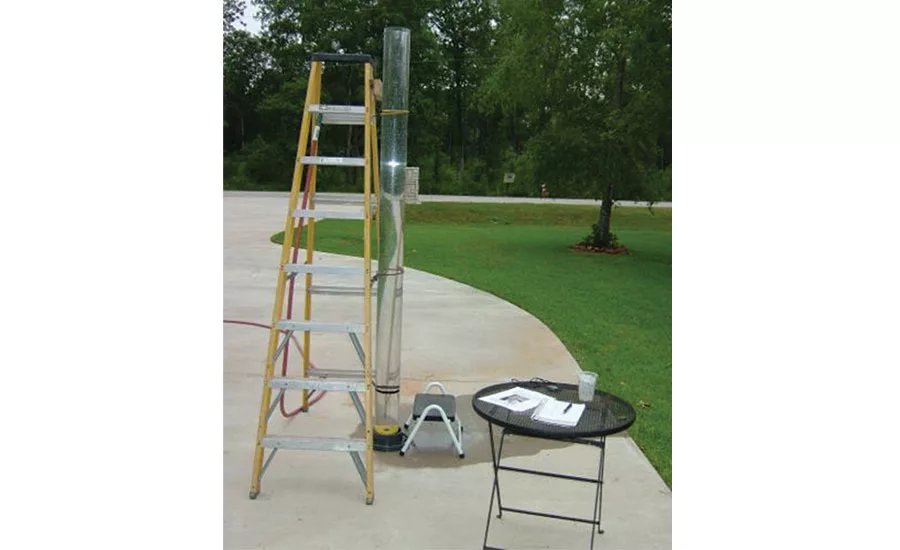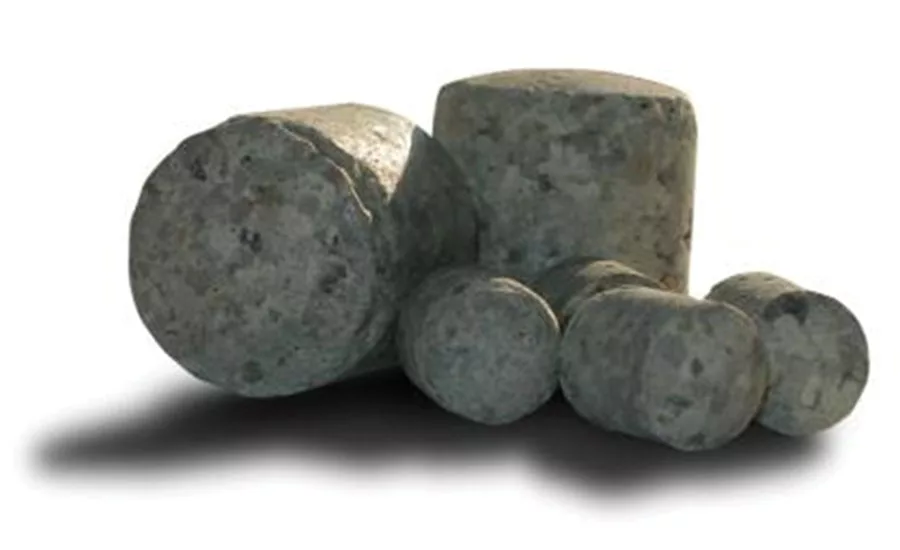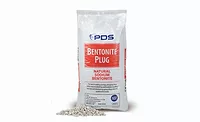When to Use Bentonite Tablets vs. Bentonite Chips

A simple experiment with a clear length of pipe shows one of the main advantages of bentonite tablets: their superior sink rate.
Source: CETCO Drilling Products photos

Bentonite chips are a commonly used product in well construction and well abandonment. They are available in a medium size (⅜-inch) as well as a coarse size (¾-inch) For many applications, these bentonite chips are sufficient. However, there are cases where the use of bentonite tablets is preferred.
Bentonite tablets are made from a high-quality, high-swell bentonite source. The clay is field dried to a specific moisture content and then further dried in a rotary kiln dryer. It is screened to a granular consistency (30-50 or 8-20 mesh), then compressed into tablets. The tablets are available in sizes ranging from ¼- to ½-inch.
Advantages to Using Bentonite Tablets
- High structural integrity and strong seal
- Faster sinking rate
- Higher swell
- Faster swelling
- Uniform shape and size
To measure structural integrity, we hydrate the bentonite tablets for two hours in a cylinder. We then apply force to the column of bentonite and measure the amount of force required to displace the bentonite. The amount of force required to displace the tablets is almost double when compared to bentonite chips. Therefore, contractors should consider tablets if the structural integrity is paramount to the specification.
The sink rate of bentonite tablets is one of the product’s winning qualities. Consider bentonite tablets if you need the bentonite to sink quickly through a column of water. The uniform shape and density of the tablets allow them to sink at a faster rate compared to bentonite chips. In general, the larger the bentonite tablet, the faster it will sink. The larger tablets will also swell slower than the smaller tablets. For this reason, I advise contractors to maximize the size of the pellet for deeper water columns.
To illustrate the difference in sink rates, I did a little experiment. I filled an 8-foot section of clear 6-inch plastic pipe to the top with water. Using this, I compared the sinking rate of tablets to bentonite chips. I replicated the test 40 times for both chips and tablets, measuring the average rates for both. Our Puregold Medium Chips yielded an average sinking rate of 0.9351 feet per second. Our Cetco Tablets yielded an average sinking rate of 1.1849 feet per second. Put another way, tablets sink 27% faster than bentonite chips.
Other Advantages to Bentonite Tablets
The high quality bentonite coupled with the low moisture content of tablets allows bentonite tablets to hydrate much quicker than bentonite chips. Bentonite tablets absorb water quickly, resulting in a strong set strength. This strong set strength develops quickly, reducing the delays sometimes encountered waiting for bentonite to hydrate.
The uniform shape and size of the bentonite tablets is useful for filling small annular spaces. The uniform shape allows pellets to fall through the narrow annular space easily. In comparison, bentonite chips that vary in shape and size are prone to bridging in small annular spaces.
There are several options for producing a bentonite seal. Depending on the application and specifics of the project, drillers may want to consider tablets for their ability to produce a seal with high structural integrity and for the quick rate at which they can sink through a water column. Their uniform shape and size is important when filling small annular spaces. Lastly, they quickly absorb water, hydrate fast and produce a strong set strength that is important if there is limited time to wait for hydration.
Looking for a reprint of this article?
From high-res PDFs to custom plaques, order your copy today!



